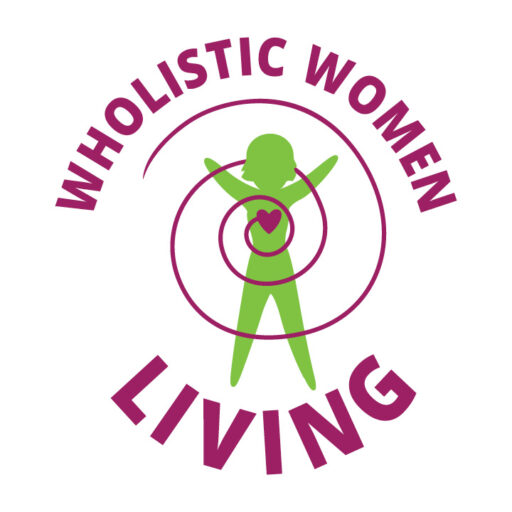
What Makes a Woman Strong and Resilient?
This is the Year of the Woman when we celebrate the 100th anniversary of the 19th Amendment giving women the right to vote. At the risk of dating myself I have the Helen Reddy song, ‘I am Woman’ going through my head…
I am woman, hear me roar
In numbers too big to ignore
And I know too much to go back an’ pretend
’cause I’ve heard it all before
And I’ve been down there on the floor
No one’s ever gonna keep me down again
CHORUS
Oh yes I am wise
But it’s wisdom born of pain
Yes, I’ve paid the price
But look how much I gained
If I have to, I can do anything
I am strong (strong)
I am invincible (invincible)
I am woman…
You can probably tell that these lyrics are referring to more than just physical strength. In addition to sheer stamina, what other attributes contribute to a woman’s overall, wholistic strength? What makes her resilient and capable of bouncing back from adversity? The answers will vary for each of us, but let’s look for commonalities.
What makes women strong and are we truly invincible?
To begin with…let’s think about the word strong and understand what we mean by wholistic strength. These are the qualities that make you the unique woman you are. They show up in the way you think and feel as well as in your physical and spiritual activities.
I wonder if you’re similar to me and can more readily identify the strengths of your friends and colleagues than you can for yourself. It’s easier for me to state what I treasure and appreciate about others, but much harder to ascertain that about myself.
Yet like our unique thumbprints, I believe that we each have our own individual ‘soul-prints’ that comprises our strengths, weaknesses, core values, and beliefs. God gave us each an individual design which we continue to develop through our life experiences, whether consciously or unconsciously.
Over the years, a certain degree of humility has kept me quiet about my natural talents. I’ve learned, though, that I need to identify these strengths and talents in order to gain confidence and to be aware of my blind spots, i.e. the areas that I don’t understand well about myself. If I’m unclear about my talents, how can I effectively manage them? It’s necessary to know what my God-given talents are in order to optimally use them for good. I will never be perfect, but being dedicated to lifelong learning helps me to continually evolve into a better version of myself.
I have been on a journey of greater self-awareness about my strengths for the past 7 years. Each day holds new opportunities for me to learn more about myself and how I manage my talents. I fine-tune how I use my gifts based on feedback that I receive.
Did you ever play the Hot and Cold game as a child? It’s almost like a verbal Hide and Seek. One person is the Seeker and leaves the room while the group quietly identifies an object to be found. When the Seeker returns to the room, she searches for the object based on guidance from the group. The group members, however, may only say ‘hot’ or ‘cold’ when directing the seeker. As the seeker moves farther away from the object the group says “cold, colder, cold”. As she moves closer to the chosen object the group encourages her with “warm, warmer, warm” and shouts “hot” when she touches it. There is delight on both sides when the Seeker finds what she is looking for. This simple childhood game is a great example of the need to give and receive feedback. We can be lost and off-course without it and waste unnecessary time going in the wrong direction. With a little help from our friends, we can more easily find our way.
We each have a role in guiding one another towards success. How? By giving positive feedback to reinforce behaviors that are working well. You do that when you let others know what you appreciate about them. It’s also crucial to let them know when their actions aren’t working well. Without feedback, we don’t know what to change. Effective delivery of feedback is a key leadership competency. You practice it every day whether you’re aware of it or not.
I enjoy teaching that our strengths have a light and a dark side. The light side is when they are working well and getting the results that we want. The dark side is when they are not working well. They are overwhelming others, or us, with too much of a good thing. I like to think of each of my top strengths as having a dial where I can turn them up or down to calibrate the desired impact that I want in different situations. With conscious observation, I can then notice when I need to use more or less of my strengths.
For example, my top strength according to Gallup’s Strength Finder assessment is empathy. That means I tend to lead with my heart, follow my intuition, and sense other’s emotions with ease. Simply put, I care a lot. It serves me well when I am connecting with others. I’ve been told that I’m a good listener and people can sense that I genuinely care. It can overwhelm me, though, when I am bombarded by negativity on the news or when I feel powerless to help improve a hurting person or situation. My empathy can also overwhelm others when I’m being too sensitive and trying to connect on a level that they may not be ready or willing to do so.
Empathy is only one of my strengths and I could tell you much more that I’ve learned about dialing it up and down. That’s another article! I have nine more strengths in my top ten and each one provides a wealth of information for me as a leader, a family member, and a friend. The truth is I will always be learning more about my strengths because each day provides new opportunities and configurations of people, situations, and experiences for learning. Knowing and owning my strengths gives me a powerful tool to better understand and use my unique thumbprint and God-given design for good.
Resilient women know how to use their strengths effectively and apply them wholistically throughout all areas of their life.
Are we invincible? What about weakness?
Unlike the superwoman in the song ‘I am Woman,’ this woman is not invincible.
It’s important to not only understand what makes us strong but also to examine areas of weakness. What do you do when you’re in the dark side of your strengths? One option is to turn it down and turn up a different strength. When my empathy is on overload, I know I need to re-calibrate by dialing up my strategic thinking strengths. My head balances my heart when it’s on overload. What else can we do?
Personally, when I get to the end of my own abilities (which is every day) I lean into my faith. I believe in a God and higher power who is supremely capable. In fact, I believe it is part of the divine design for us to hit our limits so that we will reach out for help. We aren’t meant to be all-powerful and all capable. We are meant to be in relationship with others – to need them – and to be needed. That’s the human balance.
In my book, Lost and Found: Discovering Strength in Love and Faith, I share my perspective that relationships are a beautiful kaleidoscope made up of many triangles. I picture each of my relationships as a triangle with God at the top and myself and the other person making up the other two points. As we each grow our relationship with God, the bond between the two of us grows stronger.
I also believe the Good Book which frequently says, “when you are weak, I am strong.” It reminds me of God’s promise to be present and provide His strength when I reach the end of my limits. It encourages me and reminds me that I am never alone. I don’t have to be strong and have it altogether all the time. I am designed to be imperfect and in need of help, both divine and human.
I can be a strong woman…and a weak woman at the same time. I can be good at some things and not good at other things. I can embrace my talents and relax in knowing that I am a work in progress, always learning more about how to effectively use those talents.
With that knowledge, I can sing “I am woman, hear me roar! I am woman watch me soar” into the realm of God’s love and guidance.
Resilient women know their limits and lean on their support team when needed. They are connected and know how to give and receive help.
What is your unique Strengths story?
We each have a story to tell about our individual qualities and how we use them. How have they contributed to your own resilience? What have you learned over the years about the light and dark sides of your strengths? When do your talents work best? When do they overwhelm you? What strategies do you have to address areas of weakness? What do you do when you reach your limit?
I invite you to discuss these questions and explore your strengths and resilience story with me at Discover & Own Your Strengths Evening Retreat on March 25th from 5:30-7:30 pm. I hope to see you there!




